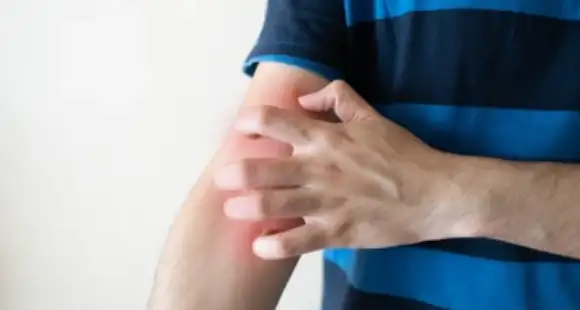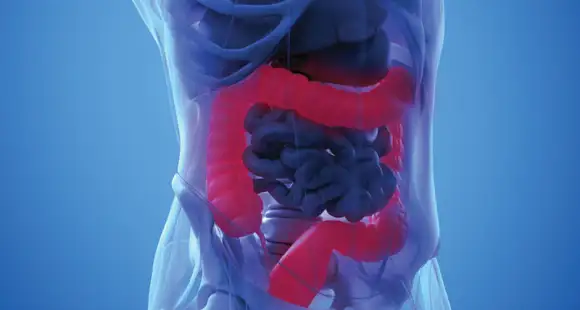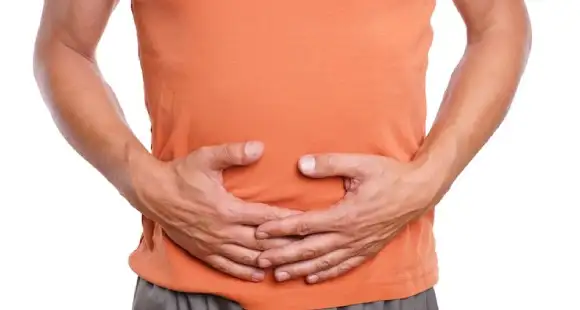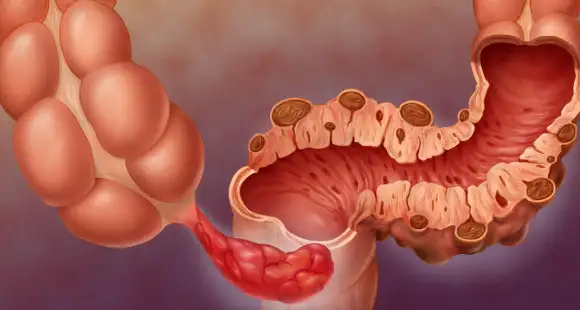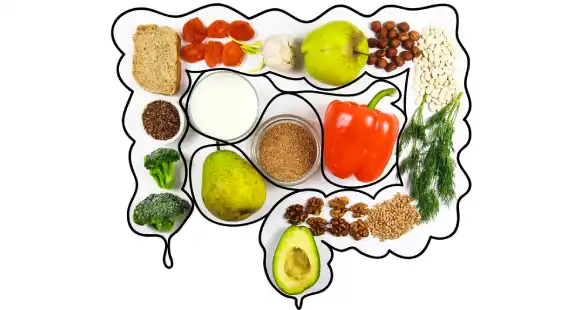Why Am I So Tired With Diverticulitis : Symptoms & Diagnosis
Are you feeling tired and not sure why? It is normal to feel exhausted after a long day of work.
But if you are feeling really tired and have no energy, it might be because you have diverticulitis. Diverticulitis is an intestinal condition that occurs when pouches, called diverticula, form on the wall of your intestine.
You might think your own thoughts about why I'm so tired of diverticulitis. Well, keep reading for the answer you don't know.
Here's Why Am I So Tired With Diverticulitis?
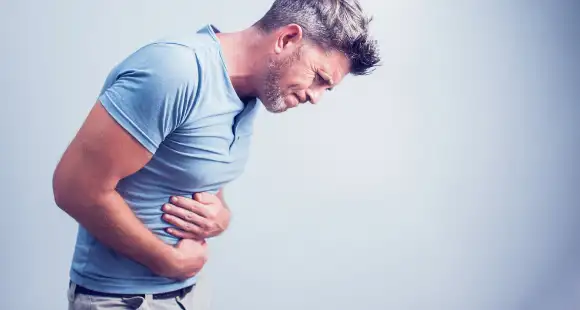
Here are some of the reasons why you may feel tired with diverticulitis:
1. You're Dehydrated
It's easy to forget to drink enough water in a day. But drinking too little water can cause your body to feel tired and weak because it is dehydrated. This is especially true if you have diverticulitis.
If the pouches of the diverticula become infected or inflamed, it can be hard for you to stay hydrated. You will want to drink water and fluids throughout the day, but you should ask your doctor how much fluid you need a day if you have diverticulitis.
2. You're Anemic
When your body doesn't have enough red blood cells due to iron deficiency anemia, it can make you feel exhausted. Likewise, being anemic due to having diverticulitis can cause tiredness.
This is because your body needs iron for hemoglobin, the protein in red blood cells that carries oxygen throughout your body. If you experience poor digestion or an intestinal condition like colitis, diverticulitis, or Crohn's disease, it can interfere with the absorption of iron in your diet.
3. You're Seriously Ill
It's not unusual to feel tired when you have a serious illness, like diverticulitis. When you are seriously ill, it will make it hard for you to get restful sleep at night. This can make you feel groggy and listless during the day.
4. You're Depressed
Some people become depressed when they are seriously ill or have chronic health conditions, including diverticulitis. If you are feeling low, it may be difficult for you to find the energy to do anything at all even if your energy levels seem normal on days when you don't feel so depressed.
You might also want to ask your doctor if you can take antidepressants while you have diverticulitis. They may help boost your energy levels and make it easier for you to feel happier and enjoy life again.
5. You're Overweight or Obese
It's not surprising that being overweight or obese can also cause exhaustion, especially if you have diverticulitis.
And being overweight or obese can increase your risk of developing diverticulitis in the first place, too. Since having diverticular disease puts you at risk for other conditions, such as heart attacks and strokes, it is important that you work to keep your weight under control.
You will need to work with your doctor to develop a weight loss plan that works for you. If you are struggling, ask your doctor if they can refer you to a dietitian or nutritionist who can help you lose weight in a healthy way.
6. You Have an Allergic Reaction
Some people with diverticulitis have an allergic reaction to certain foods. If you suspect that you might be allergic to a food, talk to your doctor and find out if it's possible for you to avoid it. This may help improve your symptoms of diverticulitis.
In some cases, there is nothing you can eat without an allergic reaction. If this is the case, your doctor may prescribe medications to help control your symptoms of diverticulitis.
7. You're Pregnant
Being pregnant can be exhausting for many women because their bodies need to take care of another life. This will also be true if you are expecting while you have diverticulitis.
When you are pregnant, your body needs more calories and protein than it does when you are not pregnant. And that means you might find yourself feeling more exhausted than usual.
Pregnant women with diverticulitis might find it helpful to talk to their doctor about possible medications or therapies that they can use during the pregnancy and after the baby is born.
These all are possible reasons of you are feeling more tired when you have diverticulitis. If you feel exhausted, see your doctor. They can help you learn more about what is causing this and what you can do to get the energy back.
Causes of Diverticulitis
Acute diverticulitis is a condition that causes pouches to form in the digestive system. These pouches, called diverticula, can become inflamed and infected because of food particles or stool that gets stuck in them.
Most people who have diverticulosis do not develop diverticulitis. Most cases of diverticulitis are mild and can be treated with antibiotics, but severe cases may require surgery.
Symptoms of Diverticulitis
There are several symptoms of diverticulitis:
- Fever and chills
- Pain in the abdomen and lower back
- Nausea, vomiting, or diarrhea
- Loss of appetite
- Constipation or bloating that is worse than normal
- Bloody stools or stools that are black and sticky like tar
Diagnosis of Diverticulitis
To diagnose diverticulitis, your doctor will ask you to describe your symptoms. They will do a physical exam and order tests to rule out other medical conditions like appendicitis and ovarian cysts.
Some of the tests that your doctor may use include: Blood and urine tests CT scan Colonoscopy Ultrasound If you have severe symptoms and they suspect a blockage, your doctor may order: Flexible sigmoidoscopy Retrograde colonoscopy
Factors That Increase the Risk of Diverticulitis
People are at risk of developing the diverticular disease if they are older than 40, obese, or have a family history of the condition. Other factors that can increase your risk of developing this condition include:
- Not eating enough fiber
- Eating foods with little nutritional value
- Drinking too much alcohol
- Lack of physical activity/being sedentary for long periods
- Taking no steroidal anti-inflammatory drugs (NSAIDs)
- Having a history of inflammatory bowel disease (IBD)
Effective Ways to Treat Diverticulitis
There are many things you can do to treat your diverticular disease and the tiredness associated with it. You will need to take it one step at a time and find out what works best for you.
1. Stay Hydrated
Increase your water intake to stay hydrated during the day. You should drink at least eight glasses of water every day, more if it's hot outside or if you are exercising regularly. Make sure you don't mistake thirst for hunger-if you feel hungry, try drinking a glass of water first before eating anything.
2. Eat a Healthy, Balanced Diet
Eating a healthy, balanced diet can help to increase your energy levels. If you are not sure how much food you should be eating, make an appointment with your doctor who can advise you on this question. You will also need to find out if there are any foods that give you an allergic reaction and that you need to cut out of your diet.
3. Exercise Regularly
Exercise can help boost energy levels in a number of ways, including by reducing stress and anxiety, getting rid of toxins through sweat, and improving circulation to help your blood move around your body faster.
4. Practice Stress Management and Relaxation Techniques
Managing your stress levels can help boost energy levels, too. Try taking up yoga or meditation, or try deep breathing for 5-10 minutes when you feel stressed during the day.
5. Get Plenty of Restful Sleep
Try to get between 7-9 hours of sleep every night so that you wake up feeling refreshed and energized. If you have trouble sleeping, try keeping a journal before going to bed-writing down everything that happened during the day can help to clear your mind and make it easier for you to fall asleep.
You can also try practicing progressive muscle relaxation or other stress management techniques in bed.
6. Minimize Nervous Habits
Nervous habits can cause you to expend a lot of energy, even when you're just sitting around the house. These nervous habits include fidgeting and pacing. If you need to get up and move around during the day, make sure to take breaks so that you aren't tired later in the day.
7. Examine Your Work Environment
If you are sitting for extended periods of time, consider getting a standing desk. This way, you will be able to move around more throughout the day and get rid of any nervous habits that may be causing you to expend extra energy.
8. Take Supplements
Diverticulitis is a medical condition and it's important that you keep in touch with your doctor before the diverticular disease. Make an appointment with them if you feel very tired when you wake up in the morning, when you are waking up during the night or if your fatigue is not relieved by any of these tips.
When Should You Visit a Doctor?
It's important that you visit your doctor if you are experiencing the following symptoms:
You have a fever or an infection in any area of your body.
You feel tightness in the chest, shortness of breath, or heart palpitations.
Vomiting for more than 24 hours-this can cause dehydration, so it's important to see your doctor immediately.
You feel nauseous and very weak.
You have symptoms of dehydration such as dark-colored urine and a very dry mouth.
Your symptoms continue to get worse over time, or they start affecting your day-to-day life and normal activities.
You experience diverticular bleeding from any part of your body.
You experience a severe headache that won't go away, even after taking painkillers.
Overall, it's always best to see your doctor if you are experiencing any kind of pain or discomfort in your body.
Your doctor will be able to help diagnose what kinds of things are causing your symptoms and can provide you with alternative treatments if they are needed.
Diverticulitis Prevention
If follow proper diverticulitis prevention techniques, you can help ward off this condition. To decrease your risk of developing diverticulitis:
- Eat fiber-rich foods or foods that cause gas, such as beans, whole grains, and meat cuts.
- Drink alcohol moderately, too much alcohol can irritate the lining of your digestive tract
- Exercise regularly to improve circulation, get rid of toxins, and reduce stress
- Remain active even when you are experiencing diverticulitis symptoms unless your doctor tells you not to
- Stay at a healthy weight, obesity can increase your risk of developing diverticulitis
- Take steps to manage stress, such as practicing yoga or meditation for 5-10 minutes per day or writing in a journal before bed
- If you feel very tired when you wake up in the morning, when you are waking up during the night or if your fatigue is not relieved by any of these tips, make an appointment with your doctor.
Factors Related to Diverticulitis
It is important to note that while there are many factors related to diverticulitis. Some of the factors related to this condition include:
Ulcerative Colitis:
Diverticulitis is common among those who suffer from ulcerative colitis, or inflammatory bowel disease. Signs and symptoms of ulcerative colitis diverticular disease include stomach pain, severe pain, cramping, diarrhea, rectal bleeding, and anemia.
Crohn's Disease:
Crohn's disease is another type of inflammatory bowel disease. Crohn's is characterized by inflammation and ulceration in the intestines which can lead to diverticulitis if left untreated.
Symptoms of Crohn's include weight loss, severe abdominal pain, diarrhea, fever, and fatigue.
Celiac Disease:
Celiac disease is a digestive disorder that involves the immune system's response to gluten. Gluten is a protein found in wheat, barley, and rye.
When you have this disease, your body mistakenly treats gluten as a foreign substance-like bacteria or a virus. As a result of this immune response, your body starts attacking its own tissue, causing inflammation.
Bowel Obstruction:
A bowel obstruction occurs when fecal matter, gas, or other substances builds up in the digestive tract and do not pass through an area of the digestive tract.
This can cause vomiting, painful bloating, stomach cramps, constipation, fever, chills, nausea, dehydration, weight loss, abdominal pain, and distention. Some bowel movement changes are often visible to individuals.
FAQs
Followings are some of the frequently asked questions regarding diverticulitis and diverticular disease:
1. What Foods Trigger Diverticulitis?
Answer: Diverticulitis can be triggered by foods low in fiber especially seeds, nuts, popcorn, and corn. Other common triggers include fatty meats and dairy products. One should follow a diverticulosis diet which reduces the risk of diverticular disease.
2. Does Coffee Cause Diverticulitis?
Answer: Coffee is known to increase intra-abdominal pain pressure. It might trigger the symptoms of diverticulitis, but there is no proof that it causes diverticular disease.
3. What Does Stool Look Like After Surgery For Diverticulitis?
Answer: Stool color after surgery differs from person to person depending on how much liquid was consumed. It might be a very light yellow or even transparent with a paste-like consistency.
4. Can I Drink Alcohol if I have Diverticulitis?
Answer: Alcohol should be consumed in moderation if you have diverticulitis. Too much alcohol can irritate the lining of your digestive tract. It might cause a flare-up, so it is best to stay away from alcoholic beverages until you are feeling better.
5. Will Diverticulitis Make Me Extremely Fatigued?
Answer: Fatigue is a common symptom of diverticular disease. It may be caused by anemia caused by low iron levels due to the bleeding associated with this condition.
6. Does Diverticulitis Cause Infertility?
Answer: Diverticulitis does not cause infertility. However, it may make conception difficult due to the inflammation in abdominal organs or blockages in the fallopian tubes that might occur with this condition.
7. Do Bananas Help Diverticulosis?
Answer: Bananas contain high levels of fiber, but they are also very acidic. One should avoid eating bananas until after treatment for the diverticular disease has been completed.
8. Does Diverticulitis Cause Blood In Stool?
Answer: Diverticulitis causes bleeding and rectal pain which may result in bloody stools. However, if your bowel movements are still soft, it might have nothing to do with your diverticulitis.
9. Can Vitamin D Help Diverticulitis?
Answer: Vitamin D plays a role in regulating your immune system. It may help reduce the severity of bowel inflammation and control your insulin levels, which might be helpful in treating this condition.
10. Does Diverticulitis Cause Jaundice?
Answer: Diverticulitis does not lead to jaundice. However, it can increase your risk of developing gallstones or pancreatitis. This might result in symptoms of jaundice.
Final Thought
Thank you for reading this article about the many reasons behind the tiredness that many sufferers of diverticulitis or diverticular disease may experience.
Hopefully, you now have a better idea of what might be contributing to your fatigue and feel empowered with knowledge on how to make lifestyle changes that will ultimately help you feel less exhausted.

